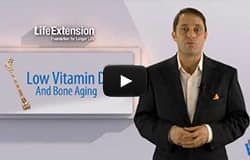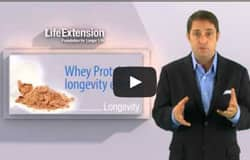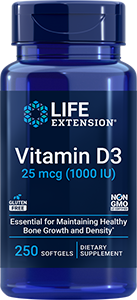Greater intake of beta-carotene, vitamin C, magnesium associated with lower risk of hearing loss
Friday, November 15, 2013. An article published ahead of print on November 6, 2013 in the American Journal of Clinical Nutrition describes the finding of a protective effect for vitamin C, beta-carotene and magnesium against hearing loss, which frequently occurs during aging and affects approximately 17% of U.S. adults.
The current study included 2,592 participants in the National Health and Nutrition Examination Survey (NHANES) 2001-2004, which was designed to assess health and nutritional information from a sample of the U.S. population. Dietary recall interview responses were analyzed for the intake of beta-carotene, vitamin C, vitamin E and magnesium from food and supplements. Audiometric examinations evaluated hearing thresholds at speech frequencies and high frequencies.
Three hundred-nine participants were found to have hearing loss in one or both ears. Increased intake of beta-carotene, vitamin C, or magnesium was associated with better hearing at both speech and high frequencies. When the joint effects of high versus low nutrient intake was considered, the combination of high beta-carotene or vitamin C with high magnesium was associated with increased protection against hearing loss at high frequencies. Similar but less significant combined protective effects were revealed for speech frequencies. Authors Yoon-Hyeong Choi and colleagues remark that free radical formation in the inner ear is a key mechanism for hearing loss, and that animal studies have shown a protective effect for antioxidants against noise-induced free radical formation in this area.
"Higher intakes of antioxidants and magnesium, individually and in combination, appear to be associated with a lower risk of hearing loss," the authors conclude. "In addition to the supplements available over the counter, dietary beta-carotene is found in many yellow and orange vegetables; vitamin C is plentiful in citrus fruit; and magnesium is commonly found in green leafy vegetables, legumes, nuts, and whole grains. Identification of protective factors coupled with avoidance of risk factors is important, especially for chronic conditions experienced by older adults." |
 |
 |
 |
|
In an article published online on February 4, 2013 in Otolaryngology—Head and Neck Surgery, Michael D. Seidman of Henry Ford Hospital in Detroit and his associates report that resveratrol, a compound that occurs in grapes, could help protect against hearing loss. "Our latest study focuses on resveratrol and its effect on bioinflammation, the body's response to injury and something that is believed to be the cause of many health problems including Alzheimer's disease, cancer, aging and hearing loss," Dr Seidman stated.
In the current study, 10 rats were exposed to acoustic trauma and their cochleae (inner ear structures) were examined for the expression of cyclooxygenase-2 (COX-2, a protein involved in inflammation and reactive oxygen species formation) at several time points during a 24-hour period. The researchers observed a rise in COX-2 protein expression following noise exposure, which increased over 24 hours. In an additional experiment that examined the cochleae of 20 rats at time points of up to 48 hours after a 24-hour period of noise exposure, a similar increase in COX-2 expression was observed, which began to decline eight hours after exposure.
In another experiment, eight rats were exposed to 24 hours of noise after pretreatment with resveratrol or a saline solution. Four rats that received no noise exposure served as controls. Cochleae were examined after noise exposure and COX-2 levels measured. Animals treated with resveratrol had an increase in COX-2 that was 7.3 times higher than that of the control group, in comparison with those treated with saline whose levels were 13.6 times higher.
"Resveratrol is a very powerful chemical that seems to protect against the body's inflammatory process as it relates to aging, cognition and hearing loss," said Dr Seidman. |
Life Extension's blog features up-to-the-minute information on topics of importance to your health and longevity. New blog posts by Life Extension's Michael A. Smith, MD, and Maylin Rodriguez-Paez, RN, include such titles as "Can Coffee and Tea Extend Your Life?" "Eat Like the Japanese," "Low Vitamin D Causes Early Bone Aging," "The Top 3 Anti-Aging Supplements," and more!
Subscribe to Life Extension's blog with web-based news readers or get the blog delivered by email http://feeds.feedburner.com/LifeExtensionBlog
Previous blog posts include "Antioxidants Lower the Risk of Cataracts," "How to Eat When Battling Cancer," "Whey Protein Increases Healthy Lifespan," and many more. Enjoy!
http://blog.lifeextension.com/
Low vitamin D causes early bone aging

Whey Protein Increases Healthy Lifespan

|
|

|

|
LACTOSOLV™ Long-Lasting Lactase, 30 capsules
Item #01702 |
| |
|
Lactase is an enzyme produced on the brush border membrane of the differentiated enterocytes lining the microvilli of the small intestine. Lactase breaks down lactose (a complex sugar that occurs naturally in dairy products) into its two component sugars, galactose and glucose, which are then transported across the lining of the small intestine.
Unlike lactase derived from mold which is only stable in the stomach, the yeast-derived lactase in LACTOSOLV™ is active in the neutral pH of the small intestine, which is the enzyme's normal site of action. The pH neutral lactase enzyme in LACTOSOLV™ is enteric-coated and encapsulated in tiny acid-resistant pellets to protect it from the highly acidic, protein-digesting environment of the stomach. The pellets are packaged in small, easy to swallow capsules that dissolve in the stomach within minutes of swallowing. Once released in the stomach, the pellets are transferred within about 15-30 minutes (without digestion) into the small intestine.
LACTOSOLV™ is a trademark of SCIOTEC Diagnostic Technologies GmbH |
|

|
|
Vitamin D3 can be synthesized by humans in the skin upon exposure to ultraviolet-B (UVB) radiation from sunlight. But, due to the winter season, weather conditions, and sun block, the body's ability to produce optimal vitamin D levels may be inhibited. These factors point to the value of taking a daily vitamin D supplement.
Vitamin D has long provided significant support for healthy bone density. However, scientists have also validated the critical role that vitamin D plays in regulating healthy cell division and differentiation, and its profound effects on human immunity. These findings link a deficiency of vitamin D to a host of common age-related problems.
The current RDA is only 600 IU. As a result of startling evidence of a widespread vitamin D deficiency, prominent nutritional scientists are calling on Americans to increase their vitamin D intake to 1,000 IU per day and higher. Currently, most experts in the field believe that intakes of between 1,000 and 10,000 IU for adults will lead to serum 25(OH)D levels above those indicative of vitamin D deficient levels, at approximately 80 nmol/L or 32 ng/mL. |
|
|
 |

|
|

